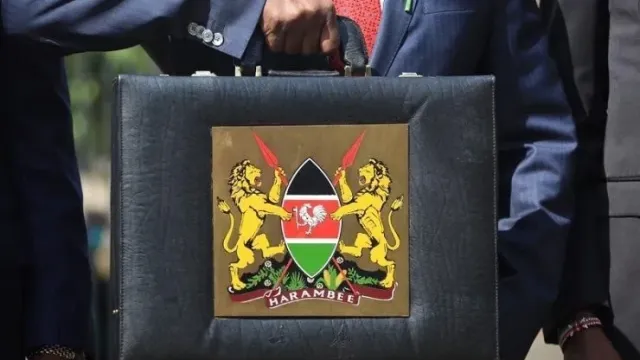KRA cleared to collect tax under Finance Act 2023

KRA cleared to collect tax under Finance Act 2023
The taxman has received the nod to continue collecting taxes in line with the provisions of Finance Act 2023. This follows a move by the executive to secure conservatory orders from the Supreme Court that effectively quashed an earlier judgement by the Court of Appeal that had rendered the Finance Act 2023 null and void.
The Court of Appeal's judgement in July that Finance Act 2023 was unconstitutional was a gut punch to the Kenya Kwanza Administration, which was still reeling from the impact of the rejection of Finance Bill 2024 following anti-tax revolt across the country.
President William Ruto withdrew Finance Bill 2024 in June as youth-led protests threatened to paralyse businesses and the government.
"We find that public interest tilts in favour of granting conservatory and stay orders to ... maintain stability in the budget and appropriation process pending the determination of this appeal," judges of the Supreme Court noted in part.
The Supreme Court is set to hold hearings on September 10 and 11 to determine whether the Finance Act 2023 is constitutional.
Court of Appeal judges Kathurima M'inoti, Agnes Murgor and John Mativo, ruled that various sections introduced post-public participation to amend the Income Tax Act, Value Added Tax Act, Excise Duty Act, Retirement Benefits Act and Export Processing Zones Act in the 2023 law were unconstitutional as they were not subjected to public participation.
The 2023 tax law came into effect on 26 June 2023 when President Ruto ascended into it. It, however, elicited nearly a dozen consolidated constitutional petitions at the High Court’s Constitutional and Human Rights Division.
Read also: Kenya’s path to fiscal health post finance bill veto
A total of 11 Petitions sought to have the Finance Act 2023 declared unconstitutional noting that it required the concurrence of the Senate and the public concerning some of the amendments passed on the floor of the House.
Additionally, the Petitioners said proper legislative process, including public participation, was not followed while enacting the Finance Act, 2023. At the core of the contention was the question of whether the Affordable Housing Levy was constitutionally introduced through the 2023 law.
According to tax advisory multinational PwC, the appellate court's decision triggered the return to the pre-Finance Act 2023 tax regime, that is, the alignment of tax procedures in harmony with the Finance Act 2022.
“In the intervening period, in the absence of a stay of execution, the Judgment of the Court of Appeal has the full force of law and accordingly, the government has to revert to the pre- Finance Act 2023 for revenue collection,” an advisory published by PwC Kenya Tax experts, led by Job Kabochi, Partner in charge of Indirect Taxes, explained.
With the latest development from the Supreme Court, however, the executive taxman has now received the green light to continue collecting taxes as per the provisions of Finance Act 2023.




